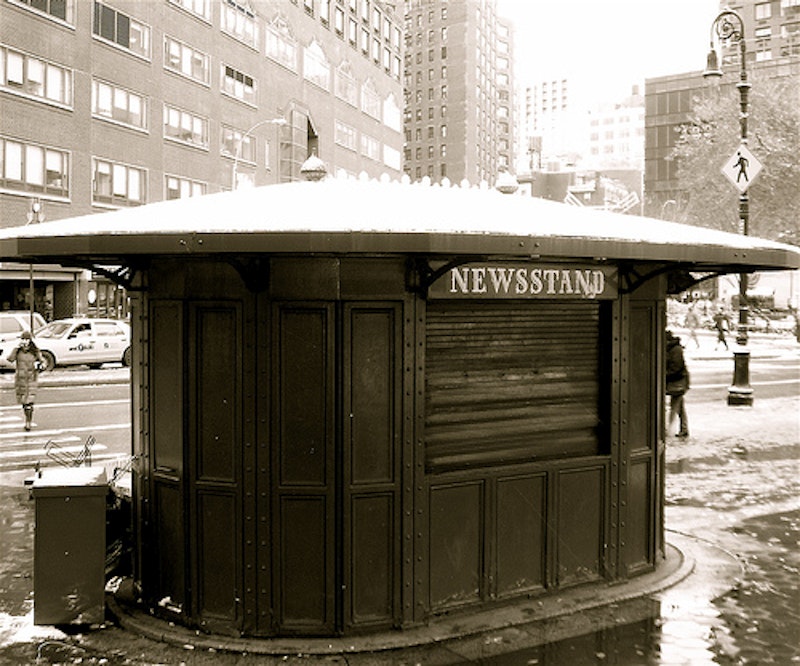Leave it to New York lawmakers to perpetuate the underlying resentments between print journalists and bloggers, pitting one side against the other in the fight to protect the constitutional rights of both parties equally.
This is both good news and bad news for the newspaper industry. The good news is that the State of New York’s shield law, which protects journalists from having to name their sources for the safety of both parties and also the sake of the relationship, could be expanded to look out for the best interests of more reporters. The bad news is that lawmakers, along with most of the general public, are still trying to figure out what a reporter is these days, and if they are even deserving of protection in the first place.
Let’s face it, blogs and online-only news resources have slowly become an integral part of the news media and their presence in societal discourse is only growing. But now state officials have more actively joined the discussion, taking a hard look at what constitutes a journalist. And when the real lawmakers out there finally do make their judgment as to whom should be deemed so, how might unconventional journalists be protected when it comes to keeping their sources close to the cuff?
The state’s current shield law protects the usual suspects—journalists involved with newspapers, magazines, news agencies, press associations, wire services, radio and television—employed as professional staffers at those media outlets. According to The New York Times' website, the bill would look to expand the scope of the law to include “journalist bloggers,” with a blog defined as “a Web site or Web page that contains an online journal containing news, comments and offers hyperlinks provided by the writer.”
Regardless of the definition given by officials, differentiating reporters from bloggers has become more difficult. On the one hand, lawmakers in New York are contesting that every reporter should have equal rights, but we’ve become so saturated with up-to-the-minute information gatherers that the current professionals might take offense to seeing the stamp of approval given to anyone who owns a computer and a URL.
But what about the cases where lines are not as clearly drawn? Are news bloggers really reporters if they’ve obtained the story from a major organization and simply posted it to a website? Or should those who are creating original content be denied an outlet for their work simply because they do not have the credentials to back it up?
Just like reality television has put attractive people on the fast track to celebrity pseudo-stardom, blogs have given some unknown writers the immediate notoriety that professionals seek after serving years in the business. Whether professional writers want to admit it or not, it’s partly an issue of vanity.
In the past, writers were satisfied with a paycheck and a byline. Now that anyone can have a byline, and often at no additional cost to the publisher, the self-fulfilling pat on the back is being replaced with nothing more than a shrug of indifference and little to no compensation.
It’s understandable that many writers fall somewhere between support for the idea of citizen journalism and outright hostility towards the blogging world for slowly taking their livelihoods away. But the shield law discussion forces opinion one way or the other.
But more generally, not knowing what the next few years will bring for written media is just plain nerve-wracking when trying to consider whom the next generation of great journalists will be. In baseball, players start in the minors with the hopes that they’ll eventually make it to the major leagues when they’ve showcased their talents and paid their dues. Similarly, politicians may start out in local districts, and gain influence from there. And with both examples, there are far less arguments about how those individuals got there if they climbed the sometimes slow and painful ladder to reach those goals.
But with trends going the way they are in the journalism industry, there does not seem to be an end point to strive towards, making aspirations for the rising number of journalism school graduates that deserve a “shot at the big show” considerably bleak.
For all the abundance of negativity that has been thrown at blogs, there may still be some good to come out of the world of citizen journalism. But until the lines between professional and amateur are clearer—whether lawmakers such as the ones in New York are given the task of drawing them or not—there might not be anything justifiably worth shielding at this point.
Should Bloggers Be Shielded, Too?
A discussion of New York's journalistic "shield law" forces the issue of whether online writers deserve the same protection as their print counterparts.

